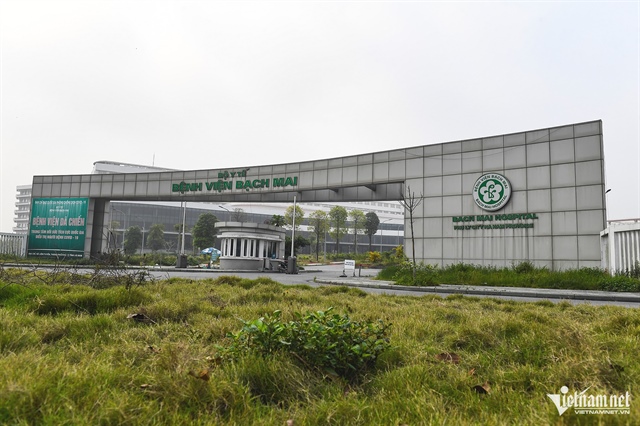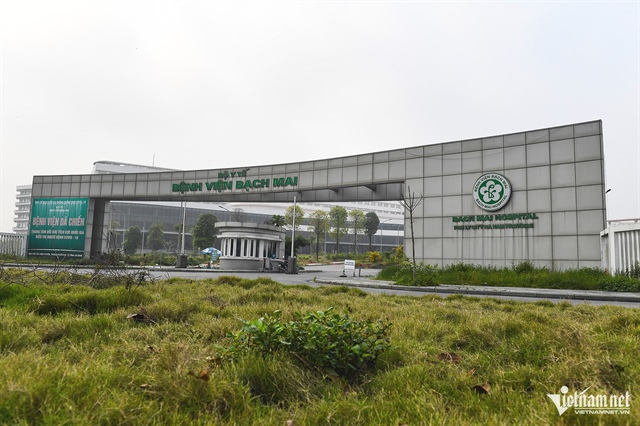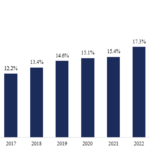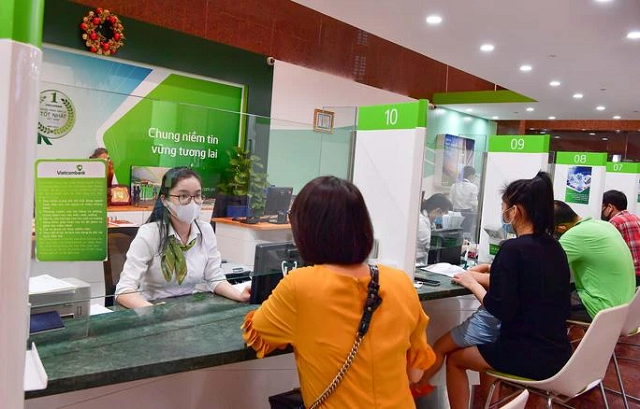Prime Minister Pham Minh Chinh has recently issued Directive 08 on strengthening waste prevention, unlocking resources, and boosting economic growth.
The directive highlights the limitations in waste prevention across various fields, notably the allocation and disbursement of public investment capital, which reduces the efficiency of state resource utilization. It also points out the shortcomings in managing and utilizing public assets.
To address these issues and unlock resources to stimulate economic growth, the Prime Minister has instructed ministries, sectors, and localities to recognize waste prevention as a common task for the entire political system, requiring responsible participation and contribution.

The abandoned construction site of Bach Mai Hospital’s second facility in Ha Nam province. Photo: Hoang Ha |
Linking the outcomes of waste prevention efforts with the goal of achieving an economic growth rate of 8% or higher by 2025 and a double-digit growth rate in the 2026-2030 period. The directive emphasizes that gains from waste prevention will serve as a crucial source of funding, contributing to the activation of growth drivers.
Avoiding Group Interests and Covering up Violations
The Prime Minister has assigned the Ministry of Finance to develop the Law on Thrift and Waste Prevention, which will be submitted to the National Assembly for feedback and approval at the 10th session of the 15th National Assembly (in October) to establish a comprehensive legal basis for supervision, inspection, detection, and stringent handling of wasteful acts without hindering the motivation of officials who dare to innovate, think, act, and take responsibility for the common good, free from self-interest.
The Ministry of Justice is also instructed to promptly finalize the decrees detailing the Law on the Issuance of Legal Documents in 2025 using an expedited process and submit them to the Government before March 31 to ensure their early entry into force, thereby unblocking bottlenecks in law-making.
Ministries, sectors, and localities are tasked with reviewing and amending regulations on socio-economic management and economic-technical norms that are no longer aligned with the country’s practical development. This review should focus on areas prone to waste.
They are also responsible for resolutely addressing stagnant and suspended projects, expediting their implementation and completion to prevent waste and loss. Measures must be proposed to handle units and individuals who cause delays or fail to perform their duties diligently.
For stagnant and long-suspended projects, it is necessary to identify the causes and propose solutions for definitive resolution, aiming to put them into operation and use as soon as possible.
The Prime Minister has assigned the Government Inspectorate to finalize the inspection conclusions regarding the investment project for the construction of the second facilities of Bach Mai Hospital and Vietnam-Germany Friendship Hospital in Ha Nam province before March 31.
Additionally, a thematic inspection will be conducted on the management and use of the economy’s resources, focusing on areas with high potential for waste and significant losses. This inspection will serve as a stern warning to other ministries, sectors, and localities regarding the efficient management and utilization of financial resources and public assets.
The Prime Minister also emphasized the need to end the practice of prolonging resolution times across multiple agencies and units. A strict monitoring mechanism between administrative levels should be established to prevent group interests, cover-ups of violations, and detrimental effects on state administration…
|
The Prime Minister noted that implementing smart governance and digital transformation is a breakthrough solution to enhance state management effectiveness, promote transparency, and reduce waste in managing and utilizing state resources. It also serves as an effective tool for waste prevention at all levels and sectors. Ministries, central agencies, and localities are urged to accelerate the application of digital technology, artificial intelligence (AI), and big data in management and supervision. Additionally, they should synchronize digital infrastructure and interconnect data systems among agencies to avoid operating in separate systems, leading to data fragmentation and challenges in information management and utilization. |
Quang Phong
– 10:50 18/03/2025
Accelerating Growth: Navigating the Pitfalls and Paving a Smooth Path to Success
Rapid economic growth is pivotal for Vietnam to escape the middle-income trap, bridge the gap with advanced economies, and aspire to become a high-income nation in the next two decades. This is a legitimate aspiration. However, alongside the goal of rapid growth, we must be vigilant and proactive in addressing the potential drawbacks that this process may entail.
Streamlining Red Tape: The Prime Minister’s Pledge for Limitless Reform
Prime Minister Pham Minh Chinh concluded the meeting of the Steering Committee for Science, Technology, and Innovation, Digital Transformation, and Scheme 06, emphasizing the need to accelerate national digitalization and develop a comprehensive digital citizen. He instructed an unlimited drive to cut and simplify administrative procedures, urging to do as much as possible. The Prime Minister also called for a decisive shift in mindset, from passively receiving and processing administrative procedures to proactively serving the people and businesses.
The Art of Asset Management: Navigating the Post-Restructuring Landscape
In the pursuit of a leaner and more efficient organizational structure, newly established entities inherit assets and are tasked with their prudent allocation and utilization.
Unleashing the Private Sector: Removing the Brakes for a True Economic Breakthrough
In the context of Vietnam’s intensified reform and international integration, the private sector is increasingly asserting its pivotal role in the economy. However, to truly unleash its potential, a comprehensive strategy is needed to address the existing constraints. In an interview with the Government Online Newspaper, Professor Vu Minh Khuong, a lecturer at the Lee Kuan Yew School of Public Policy (National University of Singapore), shared his insights on the obstacles, opportunities, and directions to enable the private sector to become a driving force for the country’s development.
The Debt Burden’s Drag on Economic Growth
Debt is a pivotal tool in the modern financial system, stimulating consumption and investment while contributing to economic growth. When managed prudently, credit enables businesses to expand their production, enhance operational efficiency, and improve labor income, thereby creating a positive ripple effect on the economy. However, debt growth is not a panacea for perpetual expansion, as the burden of interest payments can become onerous.





















